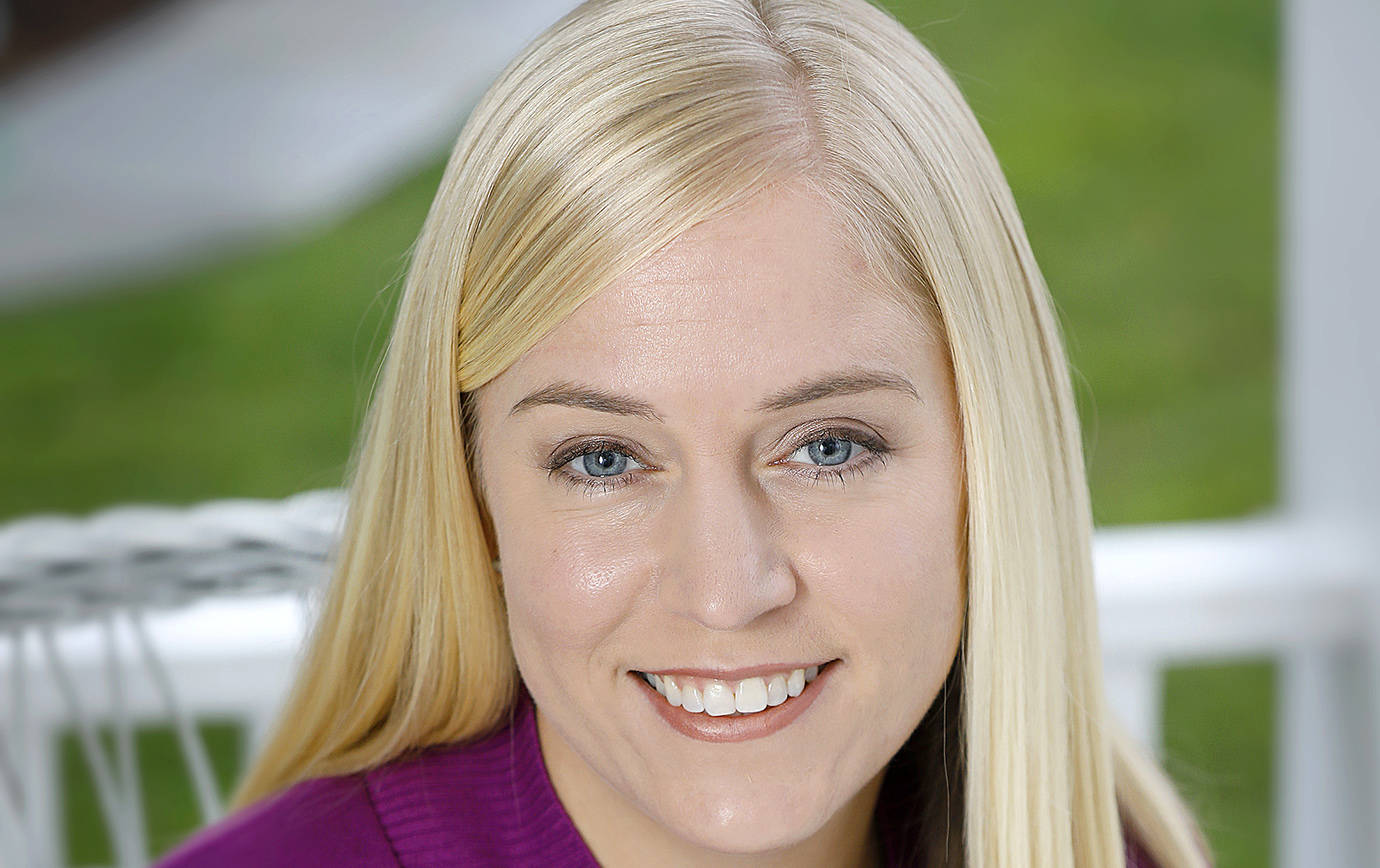Erin Frasier, running for a seat in the state House of Representatives representing the 19th District, says Southwest Washington has lost its voice in Olympia and she thinks she can help get it back.
“After the last election I feel like we’re more than ever just losing our voice for Southwest Washington,” she said. “I thought I could step up and really be a voice.” The district includes Aberdeen, Westport and Cosmopolis. It’s spread over all of Pacific and Wahkiakum counties and parts of Grays Harbor, Cowlitz and Lewis. Most of the voters live in Cowlitz and Grays Harbor.
Frasier lives in Pe Ell and said she is part of the fourth generation of her family to live in the region. Her job experience, most recently with the State Board of Technical and Community Colleges in workforce development, working with programs designed to put people to work or train them, will help her in Olympia, she said.
“Most of my professional development was working with communities (in Grays Harbor and Pacific counties), she said. “Most of my work is making sure people are engaged, making sure we get everybody in tune.”
She is facing incumbent Jim Walsh, R-Aberdeen, who is in his first term.
As she doorbells through the district she’s finding the residents focused on education and 2nd Amendment rights.
“Which is interesting, because I feel like folks have felt a little bit left behind in terms of economic development,” said Frasier. “Their desire for increased opportunities for jobs are not very specific. They feel we need to do something different.”
Frasier grew up hunting in the district and is a staunch supporter of the 2nd Amendment. Her husband is a teacher and she is focused on fine-tuning last year’s legislation responding to a State Supreme Court decision that the state must fully fund education.
“Many people believe we have solved our obligations to funding K-12 education and I don’t think we have,” she said. “I hope people are recognizing that and the need to open that conversation back up in the next legislative session. We need to focus on funds for students first. The future of our economy is at stake, we need to make sure we are supporting our students.”
One part of the school funding legislative package that needs to be addressed is the statewide cap on the amount of property tax dollars that can be collected from municipalities, she said. Many of the hardest-hit districts as far as long-term sustainability are in Grays Harbor County.
“The levy needs to be readdressed. It’s a big impact for the entire 19th. Many schools are not going to be able to compensate (for the loss of levy funds),” said Frasier. She said the allocation of funds for teachers’ salaries also needs to be explored. Although teachers in every district in the state are getting substantial raises, she said they still deserve more.
“We need to do better, to invest in our teachers,” said Frasier. “It’s ridiculous. They’re doing the work our society requires and we’re not fully investing in it.”
Access to quality, affordable health care is an issue in the district, and Frasier said access to health care is a much broader issue than just having health insurance.
“You could have the best insurance ever, but you might have trouble finding transportation, a facility or providers,” she said. Frasier has been in contact with Montesano mayor Vini Samuel about the city’s efforts to withdraw from the hospital district associated with Grays Harbor Community Hospital in Aberdeen and partner with Summit Pacific Medical Center to open a clinic in Montesano. “As long as they are ensuring increased access for people, and as long as it doesn’t cause a financial impact or a closure somewhere else, we need to be open to finding those kind of opportunities,” she said. “You should not have to go to Olympia for health care.”
Frasier believes investing in small businesses within the district could have a more stable economic impact than attracting new, larger businesses to the area.
“We can always look for major industry to come here; been there done that, and every time an industry fails or leaves, we’re still trying to recover from those,” she said. “What if we put our focus into businesses that are already here? If everyone could hire one more person wouldn’t that do more than a big new industry? We still want to recruit and diversify, but we can make an investment in small businesses to create a more stable base for our economy.”
Frasier said the economy could also be stimulated by increasing production in the state’s salmon hatcheries. She said that plan is gaining some momentum in Olympia as a possible solution to the state’s dwindling orca population.
“It’s a good thing to have that conversation, but it’s not just about supporting a natural resource. We should have had that commitment to support one of the main pillars of our local economy all along,” she said. She believes that the needs of the commercial and sport fishing industries should get equal consideration to orca recovery efforts.
Frasier is also well aware of the tough position Pacific County oyster growers were recently put into when the Department of Ecology banned a pesticide used to control invasive burrowing shrimp, which can render acres of fertile oyster ground useless. She said she would support allowing the continued use of the pesticide until an alternative method of control could be found.


